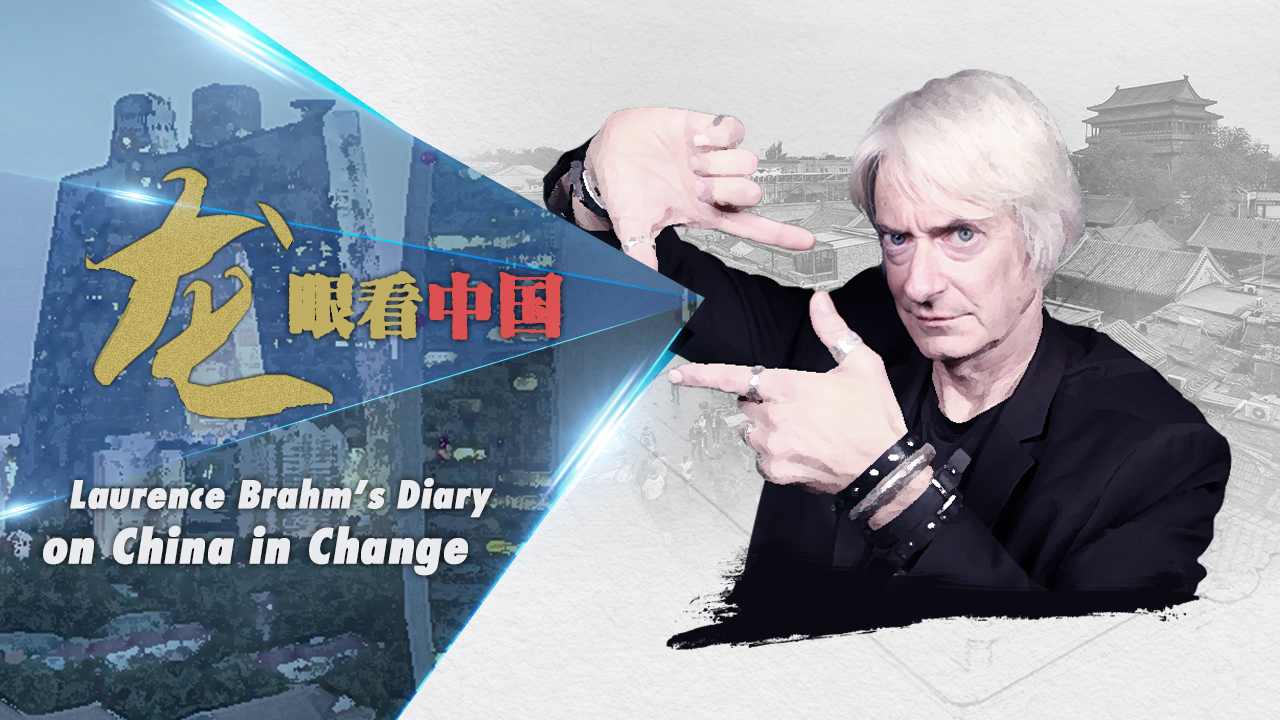
Opinions
08:28, 01-Dec-2018
Opinion: China's reform is inconceivable elsewhere in the world
Updated
09:34, 12-Dec-2018
Laurence Brahm
04:12

Editor's Note: As a lawyer, policy adviser, filmmaker and social enterprise pioneer, Laurence Brahm is not only a keen observer but an active participant in China's reform and opening up. “Laurence Brahm's Diary on China in Change” is a special series dissecting the colossal changes Brahm has witnessed in his 37-year stay in China. In the first episode, Brahm shared his views with CGTN on his personal experiences in China.
I came to China in 1981 as a student. I was in the second group of American students who went to China to study Chinese.
When I was at Nankai University in Tianjin, my classmates gave me the name Long Anzhi. I think Long Anzhi was probably a transliteration of Laurence, my first name. But over time, people would laugh and say it means Long (dragon) which symbolizes China, An (peace), and Zhi (comrade).
Having spent 37 years living and working in China, I am not only a witness but also an active participant in China's reform and opening up. In the 1980s as a lawyer, I brought a lot of foreign investors and major multinational corporations – ExxonMobil, Bayer, Roche, Ericsson – into China, negotiating their China-entry deals. I was, at that point, a conduit for China's inbound investment.
By the mid-1990s, I was serving as an adviser to much of the leadership on State-owned enterprise (SOE) reforms. Each time a foreign company joint ventured with a Chinese SOE, it meant restructuring the local partner. So the collective knowledge of how to restructure SOEs became very valuable, as that became the blueprint for China's major transition from planning to market. And I worked on the blueprint.
Fast forwarding, industrialization has created an environmental crisis, and the Chinese leadership was very quick to respond. In this context, I led the drafting work within the ministry of environmental protection, applying the tools of planning and market to drive the economy toward renewable energy.
In 40 years of reform and opening up, China has shifted from complete scarcity to oversupply of virtually every product and every service. When I first came to China, there was hardly anything in state stores. There were either blue-workers clothes or green-army clothes in department stores – only two choices.
Now, China has every kind of restaurant and every single brand in all the major cities. Everything is happening in China. The country has a plethora of commodities. That says a lot, not just about reform and opening as a policy, but about people's livelihood, tastes and the way they're seeing the world and seeing themselves.
All these are attributed to reform and opening up. Throughout the past four decades, the Chinese government has had a relatively open policy to bring in foreign investment. At the same time of bringing in foreign investment is the export of products, which has allowed China to build its foreign exchange reserves, and to become not just a producer, but a consumer of all kinds of goods.
Among all the changes, there are two moments of epochal significance. One was the transformation of the state-owned enterprises into corporations. This involved not only restructuring an enterprise but addressing issues of healthcare, pension and so forth. All of these aspects affected the individual lives of people across China.
The second epochal change was the policy of ecological civilization. In the past, China was 80-percent dependent on coal, which is one of the most polluting resources. But now ecological civilization has been written into the constitution, and by 2050, China will be 80-percent dependent on green energy.
There has never been any conceivable transformation like this within all the countries that meet every year at the UN climate change meetings. This is straightforward action and involves changes in finance and legal systems and, most importantly, in the way people think.
China's reform and opening up is integrating the country with the rest of the world. China's production of cheap products for the rest of the world was the story of the 80s and 90s. Now the future will be China being the investor in the world, and the producer of renewable energy solutions that will be exported everywhere. It is also allowing international ideas to come to China in a way it's never happened before. And in turn, Chinese culture is spreading out.
Admittedly, every single policy will have an effect, and that effect may have unforeseen consequences. Each step in China's reform and opening up has created a solution. That solution, in many ways, has created a new problem. The answer to this is pragmatism. Solving each problem at a time in a sequenced way is the story of China's reform and opening up.
Reporter: Liu Jianxi
Creative planning: Li Yunlong
Videographers: Wang Yucheng, Zheng Xiaotian
Video editors: Ge Kai, Xu Qianyun
Producer: Wei Wei
Supervisor: Zhang Shilei
(If you want to contribute and have specific expertise, please contact us at opinions@cgtn.com.)

SITEMAP
Copyright © 2018 CGTN. Beijing ICP prepared NO.16065310-3
Copyright © 2018 CGTN. Beijing ICP prepared NO.16065310-3